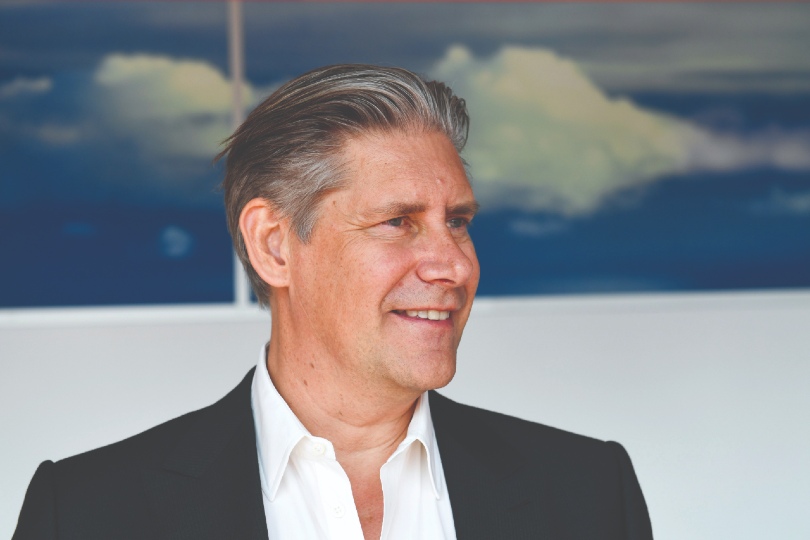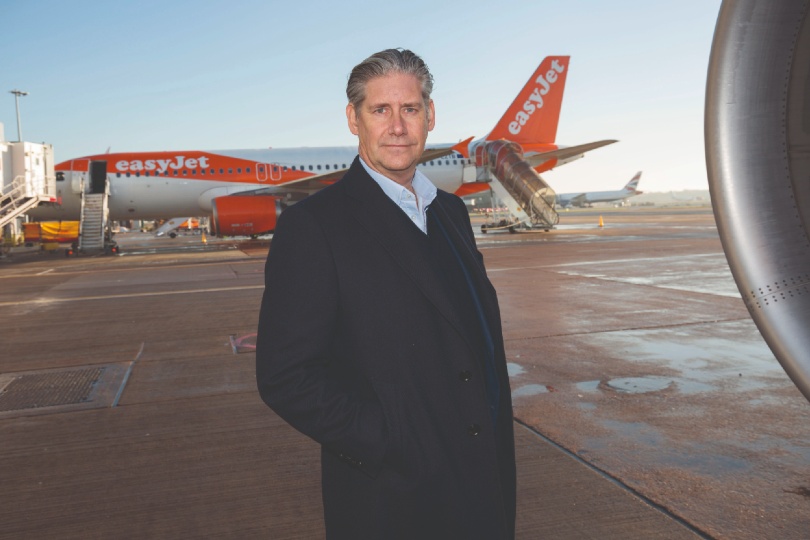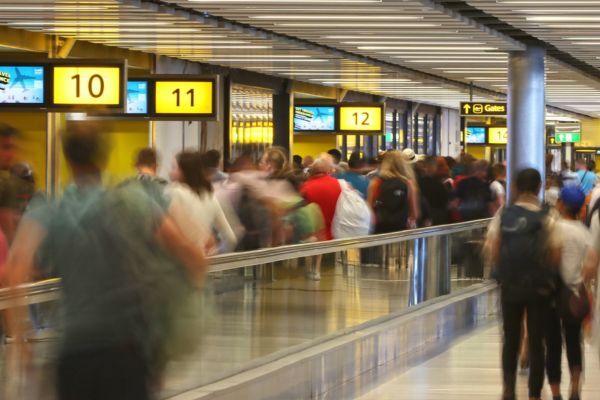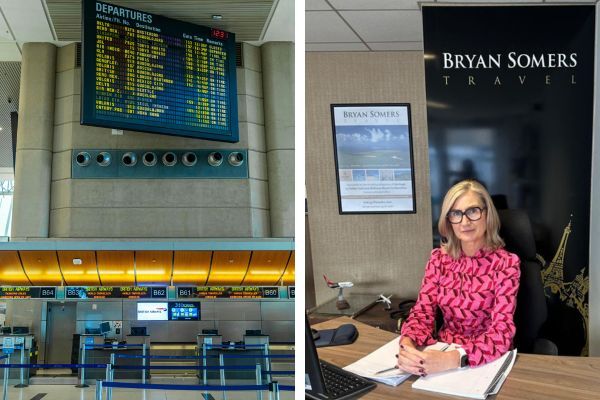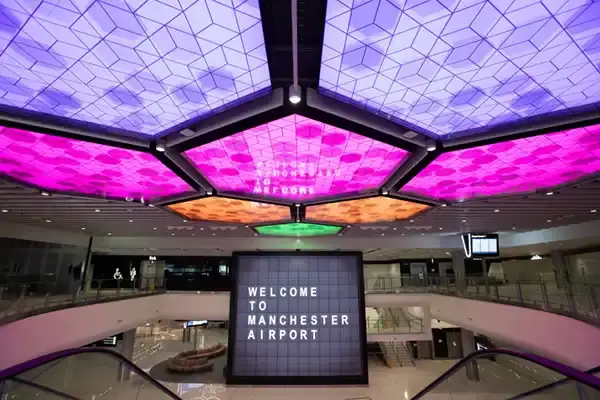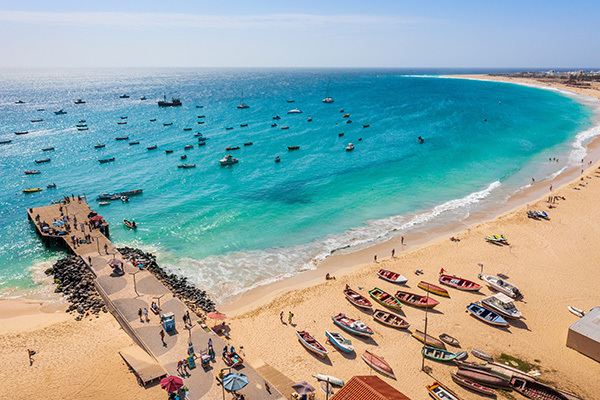Lundgren: Government should be proud of its aviation industry
 Sophie Griffiths
Sophie GriffithsPlease note this interview was conducted prior to the government’s removal of some Greek islands from the travel corridors list
In November 2019, easyJet Holidays was launched – a simple and logical step for the UK’s largest airline, making use of its network and filling the sizeable gap left by the collapse of Thomas Cook just two months earlier.
Then along came the coronavirus crisis – the greatest catastrophe to ever hit the global travel industry.
Many businesses would have shelved plans to roll out a new venture at a time when countless rival airlines and tour operators were slashing jobs, or even collapsing into administration.
But although frustrated at the situation, angry at the lack of government support and devastated at having to announce the loss of 1,900 roles, easyJet boss Johan Lundgren remains determined, and surprisingly optimistic, about the future of easyJet’s new tour operator.
“The pandemic has definitely had an impact on easyjet Holidays’ plans," Lundgren smiles. “But I think it’s important to remind ourselves that, in a strange way, the opportunity is even stronger than before.
“When we are in a downturn, people still prioritise their holidays. And we know that people gravitate towards strong brands, which is really some of the core critical assets of this company,” he explains.
“So while we have clearly been affected by this, we are pleased with what easyJet Holidays has delivered.”
An example of that, he says, is what happened when Portugal was added to the UK’s travel corridor list.
“We saw an amazing peak in sales," he reveals. "It means that there is an underlying demand for these routes and the destinations where easyJet Holidays is operating to.”
It is perhaps for this reason that easyJet Holidays continued with its plans to launch to the trade last month, a move which Lundgren says he is “immensely proud of”, as he insists the operator is “on its way to achieving” its goal of ensuring it reaches 3,000 agents.
“We definitely believe the trade can play a part, which I’m sure they will do. We’re very excited about the opportunity.”
’Govt can’t come in as last resort’
This opportunity, though, has of course been limited, not just by the impact of the pandemic, but also the government’s last-minute quarantine and travel advice decisions, as well as a notable lack of government support for the sector.
Lundgren is candid about his frustrations. “The government needs to understand that time is running out. You can’t take for granted the industry will be here [in the future].
“EasyJet is fortunate to the extent that we came into this situation as one of the strongest airlines in Europe. But companies can’t just keep on borrowing money and laying on more debt. It’s not a good mid- to long-term solution.
“We’ve got to move forward and come out of this in a good shape, so we can continue to invest into the future.”
He points out the discrepancy between the UK and Europe, noting: “Some European governments are pouring billions into Europe’s most inefficient airlines. It distorts the competition.
“[The UK government] should be proud of their aviation industry,” he says. “They should go out and say, ‘Look, we are going to support this industry’.”
Lundgren acknowledges the chancellor’s furlough schemes have been helpful, “but that is also something that other countries are doing and for longer periods of time”.
“Government can’t come in as a last resort,” he warns, “because by that time it will be too late.”
'This is a fight for survival'
So what does Lundgren want to see from government? Firstly a more “targeted approach” to quarantine, rather than the “blanket fashion” which the Department for Transport is currently adopting.
He is also a passionate advocate of airport testing – “We would want them to look to introduce testing where it makes sense.”
In the longer term, Lundgren is asking government to grant “a temporary removal of APD” (one of the asks of the TTG-led #SaveTravel campaign).
“APD is one of the highest taxes in the world. To remove that on a year’s basis would give a really great incentive for people to travel, and enable the connectivity to be there when it’s so desperately needed for the country as part of the economic recovery.”
But would easyJet commit to passing any savings in APD onto the consumer? “I think definitely a majority would be passed on,” Lundgren says.
But he also points out: “This is a fight for survival for companies. The damage has been done. We’ve been grounded for 12 weeks and now we’ve started the slow recovery.”
'Long and difficult winter ahead'
The damage to consumer confidence cannot be underestimated either, not least because of the refunds issue, particularly with regards to airlines.
Lundgren is apologetic on what he notes was a failure of easyJet to “live up to its normal standards of service”.
However, he highlights the enormous difficulties posed by the crisis. “In our Q3 this year we had more than 250,000 cancellations. Last Q3 we had about 2,500.
“There is no organisation, no company that would be set up to deal with the requests and the demands and the pressure that comes with having to deal with that type of situation,” he insists.
Lundgren says the airline is now paying refunds within 30 days. And, he notes on the customer flying experience, easyJet’s customer satisfaction score “is almost at an all time high”.
The challenge, he acknowledges, is getting customers back on flights. “It all boils down to confidence,” he sighs, “which is a result of the public policy that comes with the quarantine system.”
There is another issue that could be deterring some customers from flying, too – the question of sustainability, with some environmental groups calling for fewer planes in the sky.
Lundgren disagrees. “When we can’t fly, you see the consequences from an economic point of view, you see the impact it has on livelihoods.”
“We’ve got to make sure that flying remains accessible for millions of people, but we need governments to provide the incentives and the funds and the resources to make sure flying has less impact on the environment.”
In the immediate term, though, Lundgren is most focused on the industry’s very survival.
“The recovery will be rocky. It will be uneven,” he warns. “We have a very long and difficult winter ahead.”
The industry best buckle up tight.
Sign up for weekday travel news and analysis straight to your inbox

Sophie Griffiths
Supplier Directory
Find contacts for 260+ travel suppliers. Type name, company or destination.
